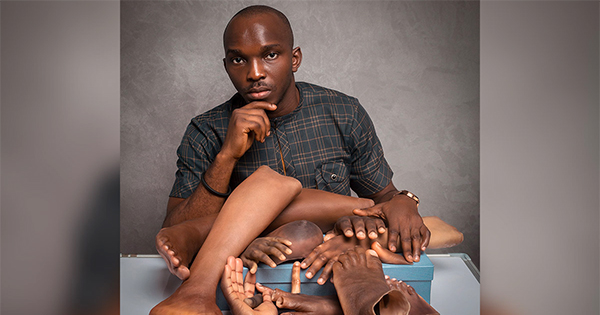A Nigerian entrepreneur and the first African sculptor to specialize in hyperrealistic prostheses for black amputees, John Amanam is the subject of this introduction. To solve the shortage of skin-tone-matching prostheses available on the market, Amanam established his firm, Immortal Cosmetic Art Ltd., with a bachelor’s degree in arts and a personal goal to remedy the issue.
Amanam’s family placed an order for a prosthesis from another country for his brother, who had lost a limb in an accident, but the prosthetic did not match his skin tone. This is where everything began. With his fine and industrial arts degree, Amanam decided to design a prosthetic covering that would be a perfect match for his brother’s dark skin.
Amanam is currently producing flesh coverings for missing body parts, such as ears, noses, fingers, and breast shapes, that are uniquely matched to the color of the skin. This was a personal struggle that she turned into a vocation. Individuals who have suffered the loss of a limb are the target audience for his efforts to offer solace and enhance their sense of respect.
Amanam, who spoke with Afro News, said, “It is important for comfort.” “When you go out there and you find out people are looking at your hand—possibly white on black skin—it could cause discomfort.”
It is a source of pride for Amanam, as they pioneered prosthetics to prioritize hyperrealism. He ensures that each object’s veins and nails are apparent through meticulous sculpting, rendering them indistinguishable from actual anatomical components.
“There’s a difference between something being naturalistic and something being realistic,” according to him. “If you were to look at a leg or a product that had the appearance of a leg, you may state, ‘Yeah, this is a leg.’ However, you may look at the artificial limb and think, “Oh, this might be real.” The distinction lies in the fact that these individuals are unable to discern between those that are real and those that are not real.
According to Amanam, his objective is to broaden the scope of his business and make his products accessible throughout Africa despite the difficulties of satisfying high demand. He emphasizes how important it is for Africans to confront their issues and develop solutions within their parameters.
It is of the utmost importance that we, as Africans, make an effort to investigate our issues. He suggested that we use our intellects and the resources at our disposal to discover a solution to our difficulty. “If the white man would solve your problem, he only did it to suit his own needs and his profit; the African would do it to suit the African society.”

